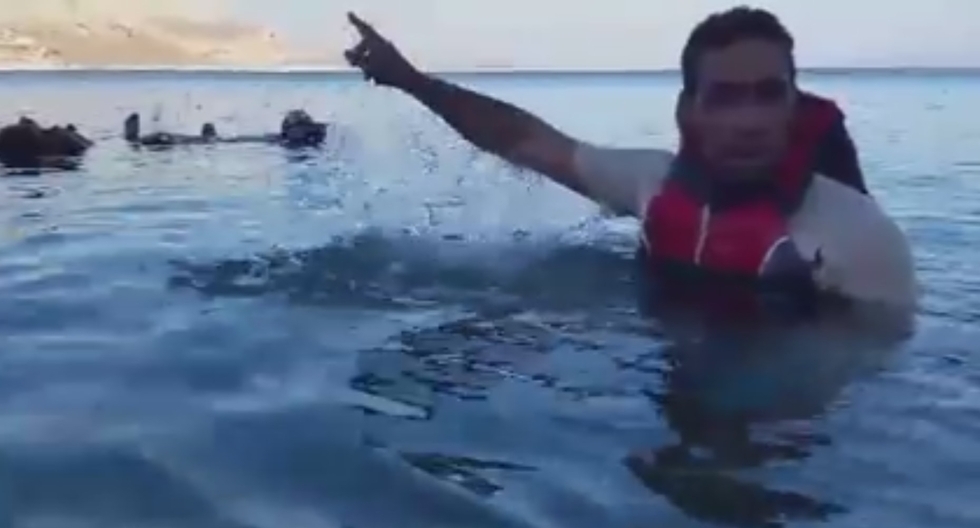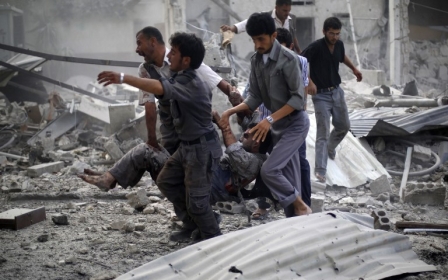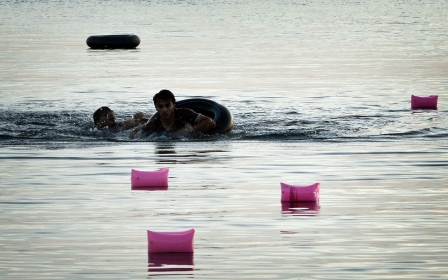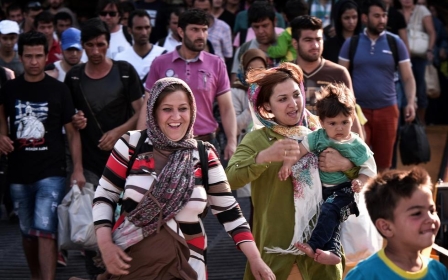I fooled the world into caring about Syrian refugees because no one is listening to us

A dramatic video that appeared to show Syrian refugees swimming through dead bodies as they reached the Greek coast provoked shock and outcry in Europe this week.
Many saw the video as representative of the plight of Syrian refugees, who have been arriving on European shores in record numbers this year but face the risk of drowning at sea when the overcrowded boats they are travelling in capsize.
The dramatised video, however, was a work of fiction that some viewers interpreted as fact. The British daily The Independent, who had originally published the video, took down their article, presumably after realising the clip had been staged.
The video was made by Givara al-Ali, a young actor and director from Syria, who told MEE that he had never claimed the video to be true. Al-Ali had recently fled to a small Greek island where he arrived less than two weeks ago. Since arriving he and a group of friends have been making short videos based on the reality that surrounds the trials and tribulations of life as a Syrian refugee. Mostly comedies, the videos portray Syrian refugees negotiating with people smugglers, wandering around the port of the Turkish city of Izmir with a selfie stick and donning oversized lifejackets for a journey on what he called the “death boat”.
He spoke to Middle East Eye about what prompted him to make this very different video, his life in Greece and his plans for the future.
"I made the video because few people are speaking out about this issue. A huge amount of people have died, but there is little media coverage. This week a boat overturned in the middle of the sea - the coastguard took eight hours to get to them, even though they knew that people were drowning. The coastguard watches people drown but they don’t approach. I heard that they left the people in the sea from 3.00pm to 8.00pm. A child was missing for 20 hours, and I don’t know whether he was found."
[Translation of words spoken by Givara al-Ali]: “The day will come when we tell our children how we sought asylum in Europe, and how Syrians were drowned. We will tell them how thousands of martyrs were lost. The day will come when we tell them that, even though Arab and Muslim countries were the closest to Europe, the door was closed in our faces. The day will come when they bury our children and say, let the Arabs perish.”
"I am now on an island in Greece - I’ve been here for 10 days. There are about 1,000 of us here. As for the conditions here…it’s worse than war. People are sleeping in the streets," Ali said.
"I would like to make it to the UK eventually, but I know it is difficult. For four months I have been filming just with my camera phone. One day I will have a real camera - people will be shocked when they see the truth."
Middle East Eye will be following Givara's story as he continues his real-life journey north through Europe over the coming days in hopes of seeking asylum.
Middle East Eye propose une couverture et une analyse indépendantes et incomparables du Moyen-Orient, de l’Afrique du Nord et d’autres régions du monde. Pour en savoir plus sur la reprise de ce contenu et les frais qui s’appliquent, veuillez remplir ce formulaire [en anglais]. Pour en savoir plus sur MEE, cliquez ici [en anglais].




